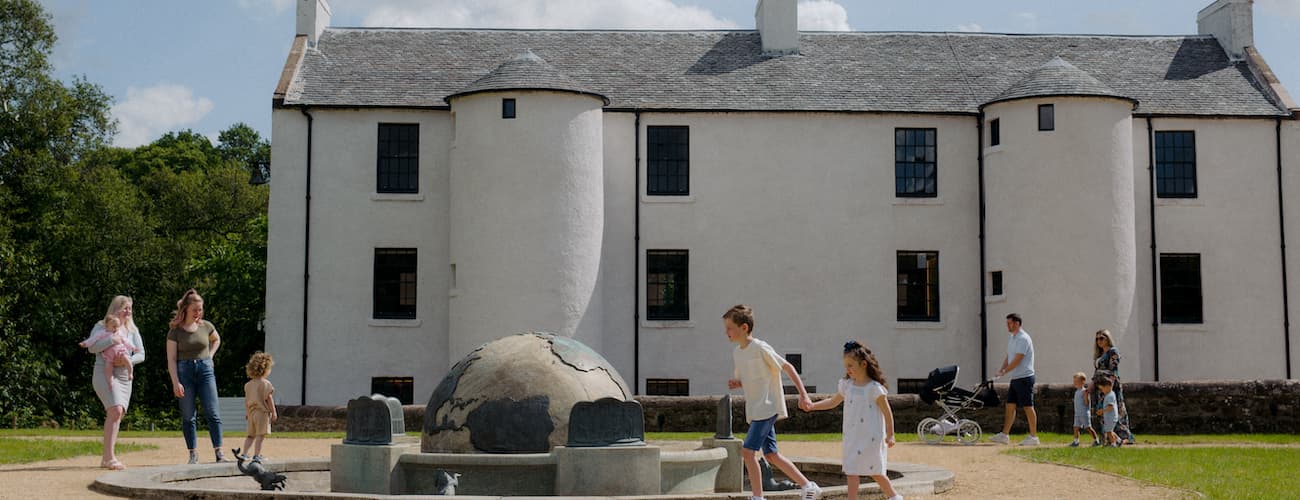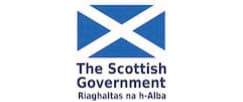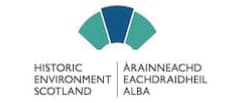Mini Series - Tunya Investigates! Episode 5 - Religion
In this episode of Tunya Investigates, we talk to Fizza who is one of our MGS Upskilling and Celebrating Volunteers Programme volunteers.
Fizza has been doing some research into people who travelled with David and people who he met while travelling – many of whom had different religions and beliefs to his own. We ask her a little bit about her research and what she’s discovered along the way that has surprised her.
Transcript
Tunya: Hello and welcome to Tunya Investigates! This week we’ll be talking to Fizza, who is a volunteer at the David Livingstone Birthplace Project, and a volunteer co-ordinator at a charity called empower women for change. We’ll be discussing David’s religion, some of the people he met while he was in Africa and his final journeys, as well as some fun facts that Fizza has discovered during her research.
Hello Fizza! First of all, what is your role in the Birthplace Project and how long have you been working with the museum?
Fizza: My name is Fizza and I am working as an upskilling and celebrating volunteer with David Livingstone Trust since September 2020
Tunya: What was it that first drew you to David Livingstone and the museum?
Fizza: I am a volunteer Co-ordinator with a charity organisation called Empower Women For Change, I joined this organisation in 2018. So last year, my manager told me about this opportunity as she knew I have a keen interest in museums and history, I also love arts and craft. The first thing that really attracted me about the David Livingston Museum was the character strength that David Livingstone exhibited during his life, the other thing I was really fascinated about was that this museum is a hidden gem and so many people don’t know about it including me. I really want to discover more about the museum and the life of David Livingstone, his expedition and his interaction with different people.
Tunya: Hmm and could you tell me a little bit about what you've been researching?
Fizza: At the moment I am reading Last journals of David Livingston and I am researching about David’s interaction with different people during his Zambezi expedition and the Arab Slave trade and how David campaigned to stop the slave trade.
So far, I have researched Last journals of David Livingston Vol 1 and Vol2, I have not read all of it but most of it. My research is consisted of 5 parts,
- The Last Journals of David Livingstone - Narrative of seven years
- People escorting David Livingston on his expedition
- Arabs slave traders and people David Livingstone met during his final expedition
- Interesting information
- Religion, David Livingstone as a Missionary
The Last Journals of David Livingstone is about David's last moments in Central Africa obtained from David's companions Chuma and Susi.
The Last Journals of David Livingstone tells us everything in detail from the time of Livingstone's departure from Zanzibar, in the beginning of 1866, to the day when his note-book dropped from his hand, in the village of Ilala, at the end of April, 1873.
Henry Morton Stanley was a traveling journalist who was sent to find David Livingston. When Mr. Stanley returned to England in 1872, Dr. Livingstone gave him a very large diary, sealed up so that it could be given to his daughter, Miss Agnes Livingstone. When David Livingston died, this book was examined and found to contain lots of the notes which David Livingston had written during his travels before meeting Mr. Stanley.
David's custom was always to have metallic note-books, which he would write in every day however, in the last three or four years of his life he wasn’t able to carry on this habit due to the difficulties of travelling so much and being very ill and tired. While in Tanzania, David ran out of note-books, ink, and pencils. So, he used pocket-books to the last inch of paper to record his daily thoughts.
These journals contain lots of notes on the habits of animals, birds, and fish, many of them probably new species, and on all sorts of beautiful things David saw while travelling. Chuma and Susi stayed for 4 months to put the Journals together into a book with David’s publisher and their knowledge of the countries David had travelled through and African geography was really useful in publishing these journals.
Another part of my research is about: People escorting David Livingstone on his final expedition: A troop of fifty -seven men and boys, made up of porters hired by Mr. Stanley on the coast, and some more African students sent from Bombay to join David Livingstone's crew. We find the names of John and Jacob Wainwright among Mr. Stanley's list.
Five of David’s companions on this final journey had been travelling with him for a long time, these were Susi, Chuma, and Amoda, who joined him in 1864, on the Zambesi eight years before Mabruki and Gardner – who had been travelling with David since 1866.
We see that the new-comers to this group got used to the hardships of travel, and joined the party who eventually carried David’s body back to the coast of Africa after he died so that he could be buried in Britain – a dangerous and heroic adventure!
So, we shouldn’t forget that it was because of the intelligence and superior education of Jacob Wain wright that we have access to account of the eventful eighteen months during which he was attached to the party.
Tunya: Ooh that’s so interesting...And could you tell me a little bit about the research you’ve been doing into the Arab slave traders and the people that David met while he was travelling?
This is another part that I have been researching. There are so many people David met during his travel but I am only going to mention three of them.
Thani Bin Suelim
Was an Arab from Koorje's people, he was in charge of the David’s goods. Mohamad bin Nassur
He presented a goat and a large quantity of guavas to David.
Sultan bin Ali
David visited Sultan bin Ali, near Tabora. Sultan bin Ali was very hospitable. He was one of the Bedawee Arabs, He was about sixty-five years of age, black-eyed, six feet tall, he had a long beard. He provided two bountiful meals to David and his companions.
Ooh we never heard about those people on the podcast before, thank you!
In our last episode, we talked to one of our volunteers, Douglas about David's religion. When he was travelling through Africa, he met lots of people with different religions from him. Did you read about any of these interactions in your research, and could you tell us a bit about it?
Fizza: So Tunya, I find it very interesting that how David was representing religion and telling people from different tribes about God, I think David was very focussed and understandable and was very eager to learn more about different religions, he was very open to it.
Davids’ determination and his innate nature to help other humans regardless of what their cast or religion is very inspiring. David was a real missionary; in his journals he talks about God in the following way: “His tender love is more lovely than a mother's heart can feel.”
David wrote this Prayer down in his journal:
“Bless the Lord, O my soul, and all that is within me bless his holy name. Amen. May he permit me to bring it to light, and give me wisdom to make a proper use of it”
Tunya: Ahh, and did you find anything out in your research that really surprised you?
Fizza: I love the way how David has written details of his encounters with different people and tribes. For example, David talks about different traits of people in his journals:
So, David described Echewa people like this: “The men have the hair dressed as if a number of the hairs of elephants' tails were stuck around the head. The women wear a small lip-ring, and a straw or piece of stick in the lower lip, which dangles down about level with the lower edge of the chin.” This is interesting because it shows David's perspective on meeting someone with a very different life and beliefs to him, I wonder what the Echewa people thought of David’s clothes...!
I also found some Interesting information that I would like to share: For example, David made very good blue ink from the juice of a berry. And a story he tells about meeting an old man, who had twenty-seven rings of elephant's skin on his arm, all killed by himself by the spear alone.
Also, David has used Words from different languages in his journals, for example: Sepoy and Havildar words are derived from the Persian language which basically mean soldiers. Veranda is a word from Hindi language which menas open-air gallery or porch. Marhaba from Arabic language it means welcome and Ramadhan word is from Arabic language as well it means month of fasting. It is to happen soon!
Tunya: Oh, that’s so interesting, I didn’t realise Veranda was from Hindi! Thanks so much for talking to me today Fizza, it's been a really good chat. My last question is: what are you looking forward to when the museum opens!?
Fizza: I can't wait to visit the museum, as it will be my first time visiting the museum, it will be wonderful to see the birthplace of David Livingstone in person and his life story, looking at the objects he used and other great artifacts. It would be amazing to look at the museum and relate to what we are studying in person i.e. David Livingstone’s history and legend.
I really enjoyed reading The Last journals of David Livingston and would love to read the following books: Fighting the Slave Hunters in Central Africa, How I found Livingstone in Central Africa
Tunya: Oooh yeah that sounds really interesting. Thanks you for all of your insights into David’s life Fizza! I look forward to meeting you when the museum opens ??
Fizza: Bye Tunya...
Tunya: Bye!
That was another episode of Tunya Investigates! Thanks for listening!






